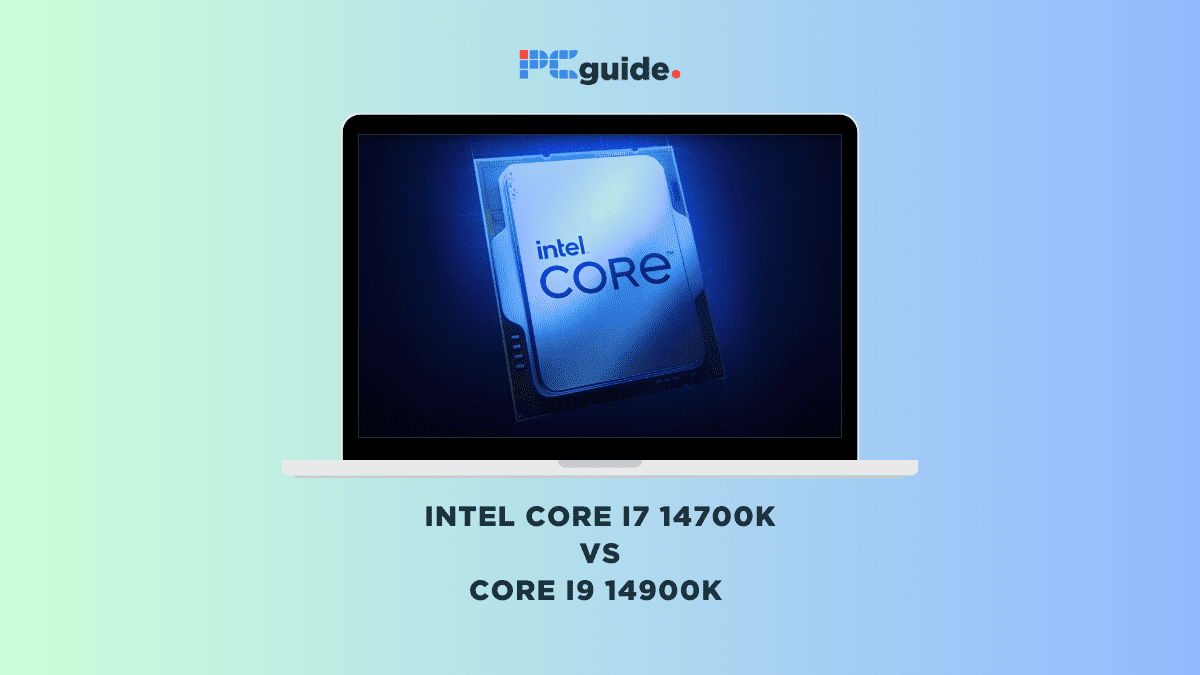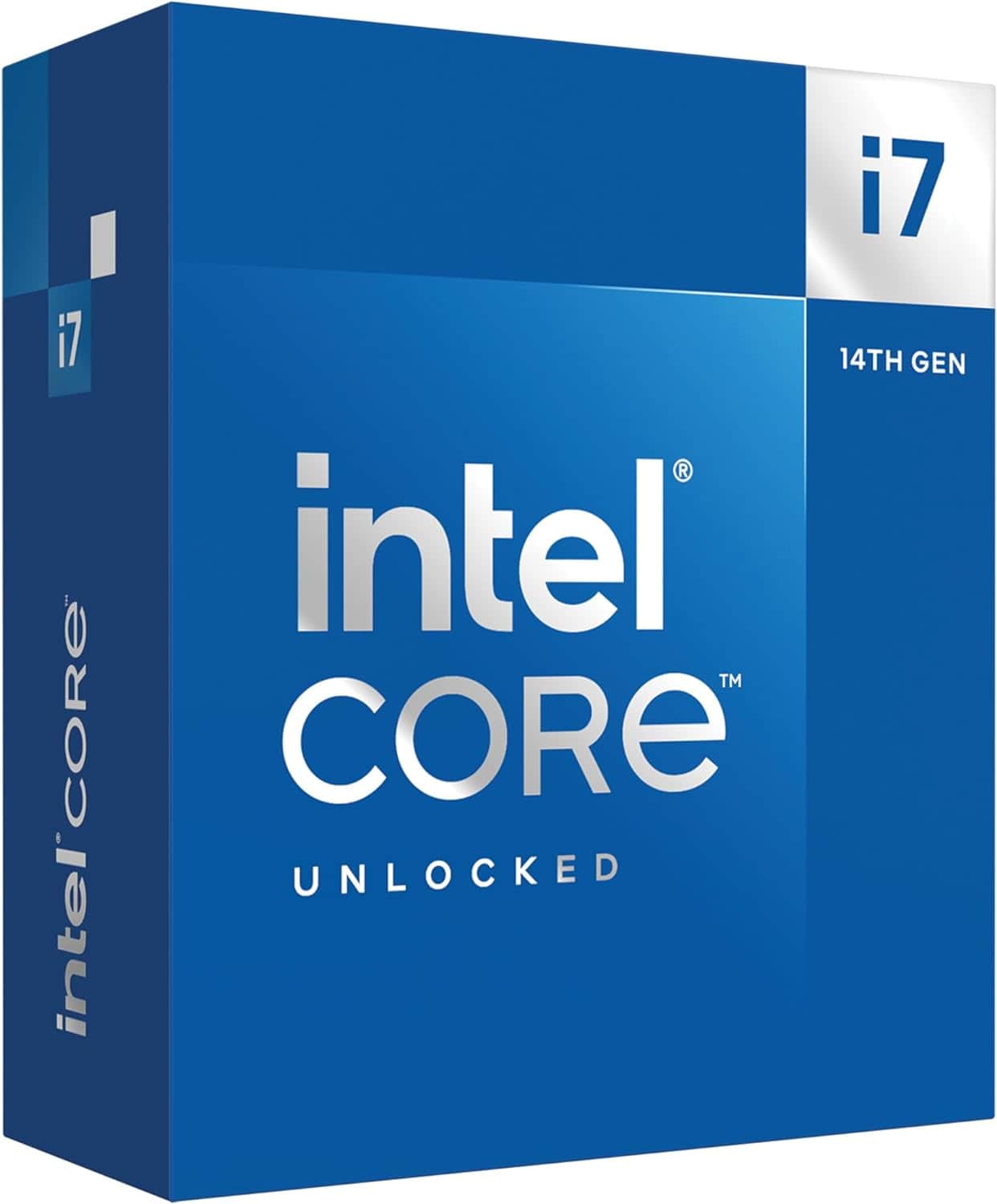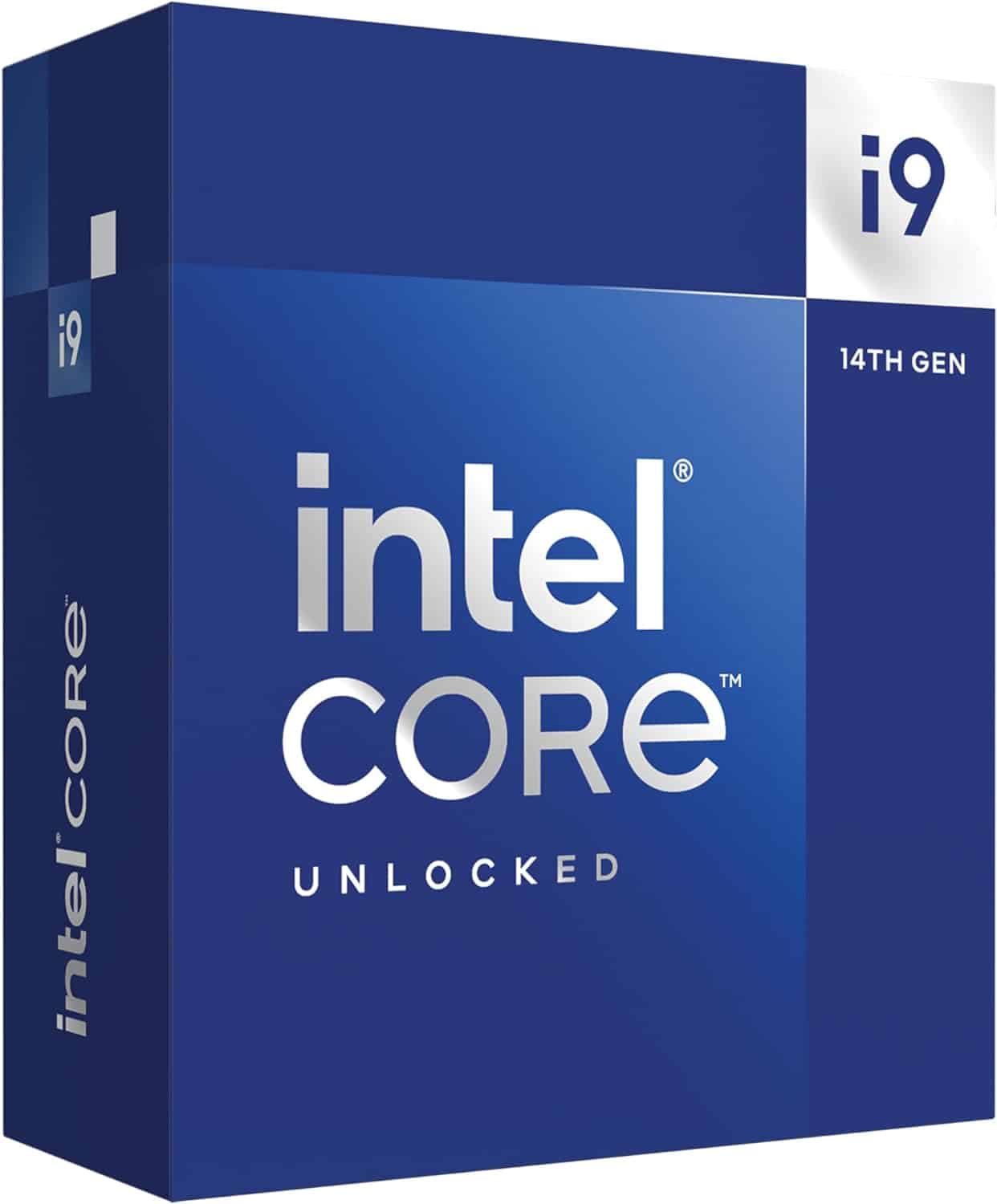Intel Core i7 14700K vs Core i9 14900K – Value or power?

Table of Contents
In the ever-evolving arena of processors, our spotlight today shines on a compelling face-off: Intel Core i7-14700K vs. Core i9-14900K. Both of these processors hail from Intel's refreshed 14th generation of Raptor Lake CPUs, marking a notable advancement in the lineage of their Core series.
This comparison aims to dissect the intricacies of these two prominent chips, elaborating on their specifications, performance, and overall value, providing a clearer perspective on which processor triumphs in various aspects.
The latest unveiling from Intel brings us six remarkable chips, each adorned with nuanced upgrades and variations. Notably, the Core i7 models have been endowed with four additional efficiency cores, marking a subtle yet significant enhancement.
In the unfolding sections, we shall delve deeper, unraveling the distinctions and evaluating the comparative prowess of the Intel Core i7-14700K and Core i9-14900K.
Intel Core i7 14700K vs. Core i9 14900K: Specs
When it comes to the battle of the titans in Intel’s latest lineup, the Core i7 14700K and Core i9 14900K offer compelling options for different types of users. Both CPUs showcase Intel’s innovation in core architecture, but they cater to distinct needs, balancing between value and power.
Core architecture and performance-cores
The Core i7-14700K is a versatile desktop processor, priced at $409. It features 20 cores, divided into 8 performance-cores (P-cores) and 12 efficiency cores (E-cores), along with 28 threads.
With a base clock speed of 3.4 GHz that can turbo boost up to 5.6 GHz, this CPU is particularly appealing to gaming enthusiasts. It strikes a balance between performance and cost, making it a universally attractive option for those looking to optimize their application performance without breaking the bank.
Frequencies and motherboards
The Core i9-14900K, on the other hand, is a powerhouse designed for professionals, priced at $587. It houses 24 cores—8 P-cores and 16 E-cores—and 32 threads. The base clock starts at 3.2 GHz, but can soar up to an impressive 6.0 GHz.
This CPU is compatible with motherboards that support the LGA 1700 socket, offering flexibility in system builds.
| Feature | Core i7-14700K | Core i9-14900K |
|---|---|---|
| Cores | 20 (8+12) | 8+16 (24) |
| Threads | 28 | 32 |
| Base clock | 3.4 GHz | 3.2 GHz |
| Boost clock | 5.6 GHz | 6.0 GHz |
| L2 / L3 CACHE | 33 MB L3 Cache | 32 / 36 MB |
| TDP (PL1) | 125W | 125W |
| MSRP | $409 | $587 |
Graphics and connectivity
Both CPUs offer integrated graphics, but the i9-14900K takes the lead with slightly better graphics performance. When it comes to connectivity, the i9-14900K also offers Bluetooth capabilities, adding an extra layer of convenience for users.
Application performance optimization
The i9-14900K excels in application performance optimization, capable of handling demanding multi-core tasks with ease. This makes it ideal for users who require robust multitasking capabilities and high-level professional productivity.
By examining these specs, it’s clear that the i9-14900K is geared towards users who need maximum power and are willing to pay for it, while the i7-14700K offers a balanced, cost-effective solution for a broader range of tasks.
Whether you prioritize value or power, both CPUs have something unique to bring to your computing experience.
Intel Core i7 14700K vs. Core i9 14900K: Performance
When it comes to performance, the Intel Core i9-14900K stands as the flagship of Intel’s CPU lineup, consistently outperforming the i7-14700K in various benchmarks.
However, the margin by which the i9 leads isn’t as wide as you might expect, especially when considering the traditional performance gaps between the i9 and i7 series.
Turbo boost clocks and multi-threaded workloads
Both CPUs have shown remarkable results in multi-threaded workloads, particularly in benchmarks like Cinebench R23 nT and Blender 3.6.0. The i9-14900K takes a slight lead, thanks to its higher turbo boost clocks, reaching up to 6.0 GHz. This is indicative of Intel’s innovation in optimizing application performance.
Performance gains and platform advantages
When it comes to generational improvements, the i7-14700K is a star performer. Benchmarks reveal performance gains as high as 25% in tests like the Monster benchmark.
On average, the i7-14700K showed an uplift nearing 20% across various tests, including Monster, Junkshop, and Classroom. These performance gains are a testament to the platform’s AI assist features, which help in optimizing multi-threaded workloads.
Graphics and Wi-Fi capabilities
While the focus is often on CPU performance, it’s worth noting that both processors support advanced graphics and Wi-Fi 7 capabilities. These features add value to the overall platform, making either CPU a robust choice for a modern desktop processor.
Thunderbolt and motherboards
Both CPUs are compatible with 600-series and 700-series motherboards, offering flexibility in your choice of platform. However, it’s worth noting that the newer 14th-generation processors will support Wi-Fi 7, which could be a deciding factor for some users.
Value proposition
Interestingly, despite its higher performance metrics, the i9-14900K comes at a higher price tag of $587, compared to the i7-14700K’s $409. This might influence your cost-to-performance considerations, especially if you’re looking for better value in your next upgrade.
Role of e-cores and p-cores in performance
The i9-14900K houses 24 cores, with 8 performance-cores (p-cores) and 16 efficiency cores (e-cores), while the i7-14700K comes with 20 cores, split between 8 p-cores and 12 e-cores. These additional e-cores contribute to the CPUs’ ability to handle multi-threaded workloads efficiently, further enhancing their performance metrics.
Intel Core i7 14700K vs. Core i9 14900K: Price
In the realm of price considerations, the i7-14700K emerges as an enticing proposition for budget-conscious users who prioritize optimal price-to-performance ratios. It is priced affordably, allowing a broader spectrum of consumers to access commendable performance without causing a significant dent in their wallets. This makes the i7-14700K a go-to choice for those who desire exceptional value without compromising too much on performance.
Conversely, the i9-14900K is positioned at a premium tier, reflective of its high-end specifications. Targeted towards users who are engaged in intensive content creation tasks and who demand nothing but the best, the i9 justifies its higher price tag with unmatched power and efficiency.
For professionals where every second counts and for whom peak performance can translate into tangible productivity gains, the investment in the i9-14900K is both logical and rewarding.
Intel Core i7 14700K vs. Core i9 14900K: Conclusion
In the face-off between Intel's Core i9-14900K and i7-14700K, the landscape of performance is certainly compelling. While the i9-14900K stands tall in delivering remarkable performance, its incremental gains over its predecessor, the 13900K, are not substantial. In comparison, the i7-14700K may tread familiar grounds regarding its previous iteration, yet it outshines the i9 in terms of generational improvement. When we look at upgrades, the i7-14700K undoubtedly emerges as the superior contender.
Furthermore, the versatility of the i7-14700K is noteworthy. Designed as the quintessential gaming CPU, it pairs harmoniously with a wider array of GPUs, ensuring gamers can extract the most from their systems without breaking the bank.


